Continuing the 10th session, on the afternoon of October 22, the National Assembly discussed in groups three draft laws related to the field of education and training, including: Law amending and supplementing a number of articles of the Law on Education; Law on Higher Education (amended) and Law on Vocational Education (amended).
Specific guidance on the mechanism for selecting and using textbooks is needed to avoid rigid application.
Commenting on Article 32 regulating general education textbooks, delegate Ma Thi Thuy ( Tuyen Quang Delegation) agreed with the policy of the State providing a unified set of textbooks nationwide.
According to delegates, this ensures fairness in access to education, especially for remote areas, ethnic minority areas, and mountainous areas - where economic conditions, facilities, and teaching staff are limited.
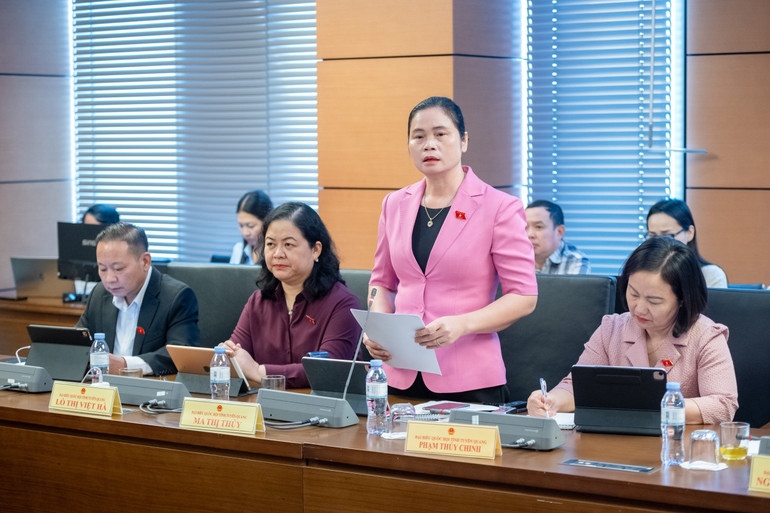
However, the delegate said that it is necessary to clarify the scope of "a unified set of textbooks": are they compulsory textbooks used nationwide or are they just standard textbooks compiled and distributed for free by the State, while other sets have the right to choose?
Delegates requested the Government to provide specific guidance on the mechanism for selecting and using textbooks to avoid rigid application, causing confusion and waste when investing in many different sets of textbooks according to the current program.
Regarding the regulation of free textbooks for students, delegate Ma Thi Thuy expressed her agreement and emphasized that this is a humane policy, consistent with the spirit of Resolution No. 29-NQ/TW on fundamental and comprehensive innovation in education and training. The delegate suggested that the draft Law should clarify the mechanism for providing, managing and reusing textbooks.
At the same time, it is necessary to consider policies to encourage shared textbook libraries in schools, especially in areas with particularly difficult socio-economic conditions; to avoid waste when students receive free textbooks but are not responsible for preserving and reusing them.
Sharing the same view during the group discussion, delegate Duong Khac Mai (Lam Dong Delegation) agreed with the regulation of unifying a common set of textbooks nationwide.
The delegate pointed out the reality through contact with local voters, many parents expressed concerns about the issue of textbooks, as having many sets of books can cause difficulties for students if they want to transfer to schools that use different sets of textbooks.
In addition, the delegate also recommended that it is necessary to consider clearly regulating how to print this book series, so that it can be passed on, avoiding wasting resources, and reducing the burden on parents and students.

Delegate Thai Van Thanh (Nghe An Delegation) commented that the unified application of a common set of textbooks nationwide not only ensures equal access for students but also facilitates the management of state agencies in education and school administration, reducing complications when students transfer schools.
Besides the content on textbooks, some other proposals to amend and supplement the Law on Education also received the agreement of National Assembly delegates, such as the regulation that diplomas and certificates can be issued in electronic or digital form.
Agreeing that this regulation is in line with the digital transformation trend and facilitates management and verification, delegates suggested that it is necessary to clarify the legal value and security of electronic/digital diplomas as well as the mechanism for managing national diploma data, ensuring safety, transparency and anti-counterfeiting...
Agree to "legalize" the role of businesses in vocational education
Participating in the discussion on the draft Law on Vocational Education (amended), delegate Nguyen Thi Viet Nga (Hai Phong City Delegation) was interested in the provisions in Chapter 6 of the draft on the role, rights and responsibilities of enterprises.
Delegates affirmed that this is an "important step" to institutionalize the major policies of the Party and State on socialization, linking training with the labor market and developing the private economy.
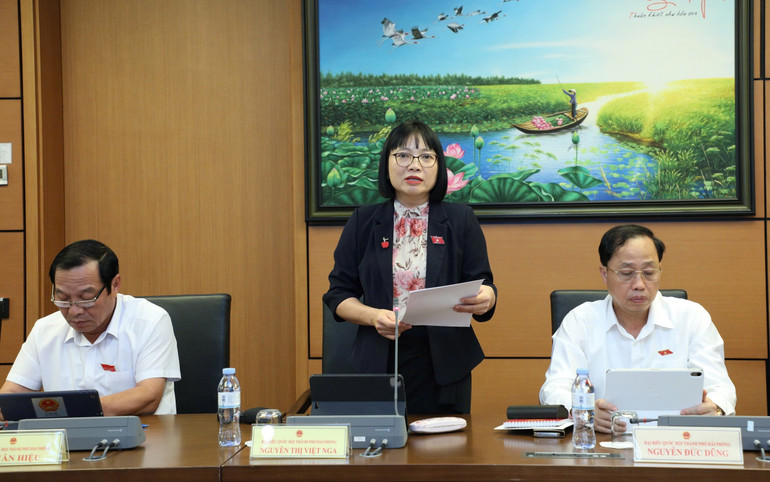
The draft law has made an important shift, from "vocational training to provide labor for businesses" to "vocational training with the active participation of businesses". The provisions on benefits (tax deductions when training) and responsibilities (arranging experts, paying interns) have turned businesses into "active links", instead of just passively receiving output.
In the context of digital economic transformation, clearly legalizing the role of enterprises is a "prerequisite" to improve the quality of technical human resources and vocational skills, which are currently "weaknesses and bottlenecks" of the Vietnamese labor market.
Delegate Nguyen Thi Viet Nga also pointed out that the current relationship between schools and businesses is still "very loose, formal and lacking in depth". The reasons are: many businesses (especially small and medium enterprises) still consider vocational training as "a cost rather than a long-term benefit"; the vocational education system is still "heavy on training in schools and classrooms", the curriculum is slow to update, and the facilities are outdated. As a result, businesses have to "retrain", causing a great waste of social resources.
From analyzing successful international experiences, delegate Nguyen Thi Viet Nga proposed four specific recommendations to complete the draft.
First, add a three-party "contract mechanism": State - Vocational training institution - Enterprise. This contract must clearly define the responsibility for sharing training costs, evaluating results and committing to recruitment after training.
Second, more clearly regulate financial incentives. Clause 5, Article 32 (tax deduction) needs to have "specific guidance on rates, procedures, and criteria for recognizing valid expenses", instead of just being a framework regulation.
Third, for FDI enterprises, delegates proposed to study the requirement of "minimum rate of vocational training or skill transfer for Vietnamese workers". Delegates believe that this is both a measure to increase national internal strength and a tool to force FDI enterprises to fulfill social responsibilities.
Fourth, encourage the "enterprise - vocational school co-ownership" model. Accordingly, enterprises contribute investment capital, have the right to co-manage the program and use students as reserve human resources, ensuring practical training and job creation immediately after graduation.
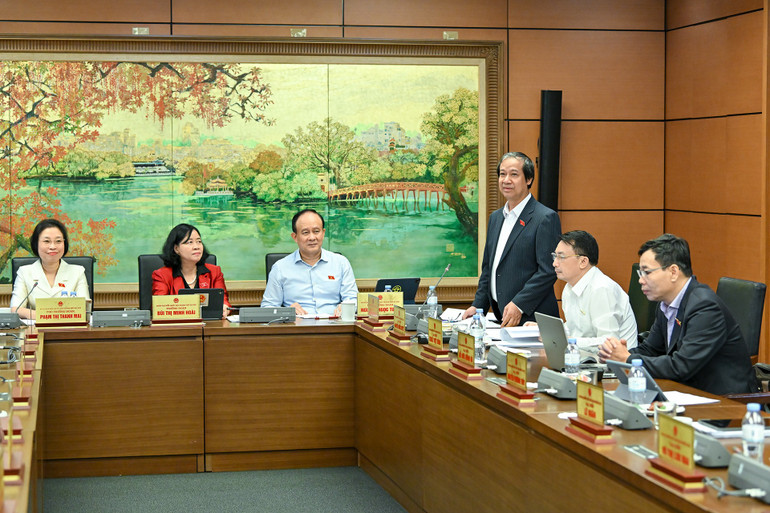
Regarding the issuance of certificates and diplomas, delegate Nguyen Thi Lan Anh (Lao Cai Delegation) agreed with the regulation that the issuance is by the head of the educational institution to ensure concentration, personal responsibility in management and training quality, in accordance with domestic and international practices.
However, in reality, vocational training organizations, especially other types of training such as less than 3 months, regular, or refresher training, the number of students is very large and often continuous, while the head of the vocational training institution may be absent for long periods or busy working in remote villages (where the certificates are issued), leading to difficulties and delays in signing certificates at the closing ceremony.
Therefore, the delegate suggested that it should be regulated that deputies can sign certificates for the scope of regular training certificates, in order to reduce administrative procedures and ensure timely issuance of certificates. For regular diplomas, of course, the head must sign. The delegate also emphasized that this should be accompanied by strict regulations, clear responsibilities, and enhanced quality control to avoid widespread abuse.
Source: https://nhandan.vn/dong-tinh-chu-truong-co-mot-bo-sach-giao-khoa-thong-nhat-toan-quoc-post917205.html


![[Photo] Prime Minister Pham Minh Chinh chairs meeting on nuclear power plant construction](https://vphoto.vietnam.vn/thumb/1200x675/vietnam/resource/IMAGE/2025/10/22/1761137852450_dsc-9299-jpg.webp)

![[Photo] Award Ceremony of the Political Contest on Protecting the Party's Ideological Foundation](https://vphoto.vietnam.vn/thumb/1200x675/vietnam/resource/IMAGE/2025/10/22/1761151665557_giaia-jpg.webp)
![[Photo] Da Nang: Shock forces protect people's lives and property from natural disasters](https://vphoto.vietnam.vn/thumb/1200x675/vietnam/resource/IMAGE/2025/10/22/1761145662726_ndo_tr_z7144555003331-7912dd3d47479764c3df11043a705f22-3095-jpg.webp)
![[Photo] Comrade Nguyen Duy Ngoc visited and worked at SITRA Innovation Fund and ICEYE Space Technology Company](https://vphoto.vietnam.vn/thumb/1200x675/vietnam/resource/IMAGE/2025/10/23/1761174470916_dcngoc1-jpg.webp)
![[Photo] General Secretary To Lam and his wife begin their official visit to Bulgaria](https://vphoto.vietnam.vn/thumb/1200x675/vietnam/resource/IMAGE/2025/10/23/1761174468226_tbtpn5-jpg.webp)




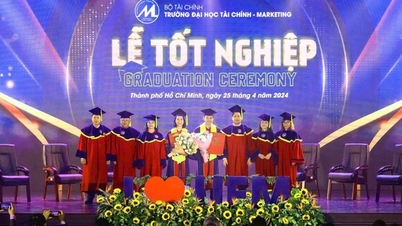



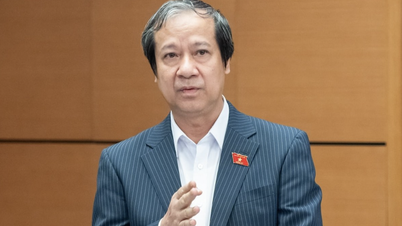











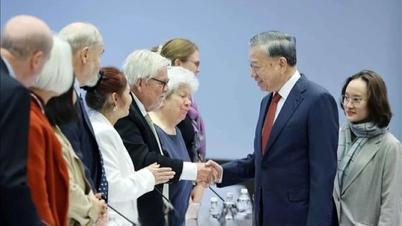
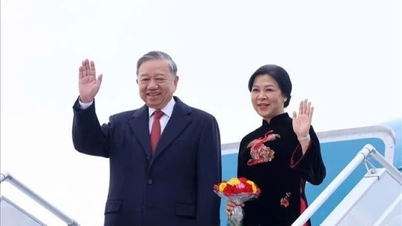







































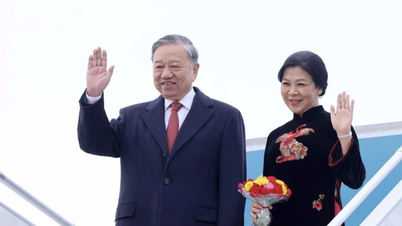




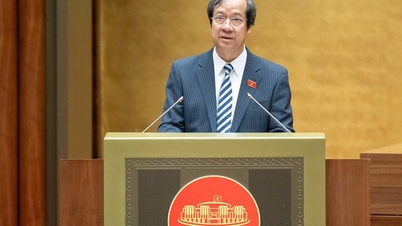

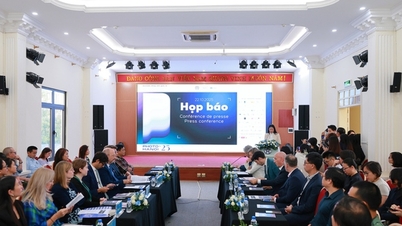

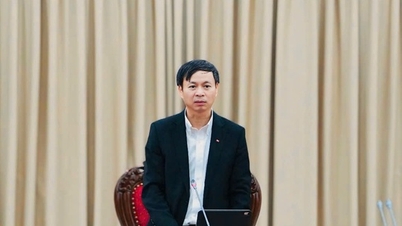





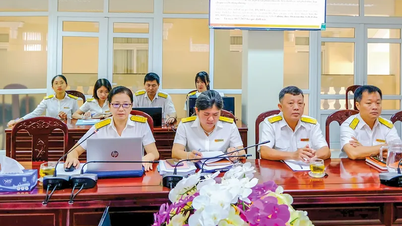


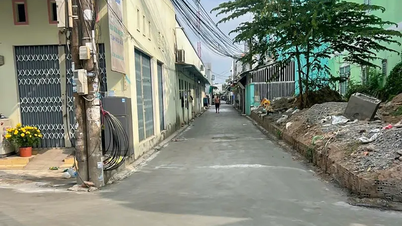















Comment (0)